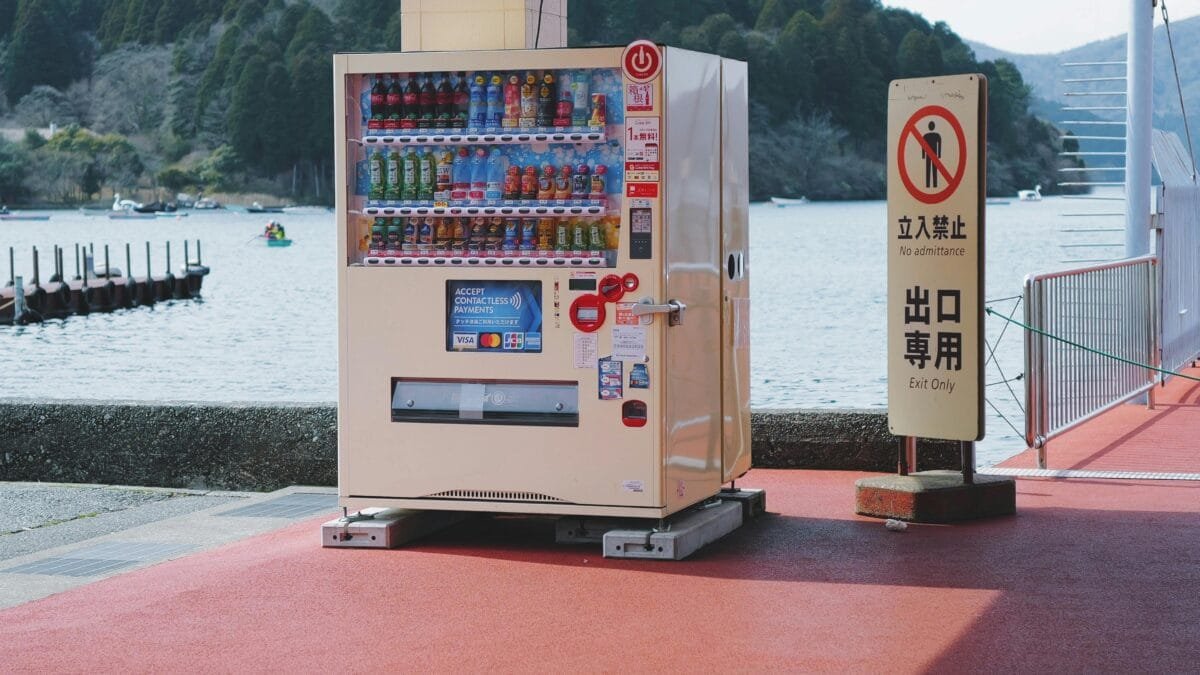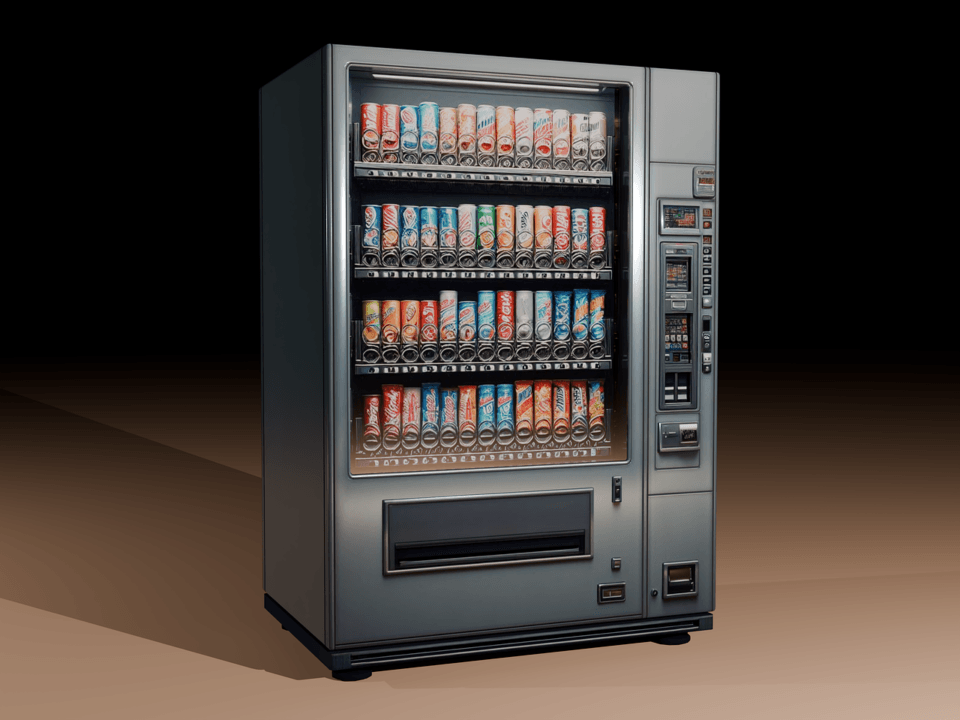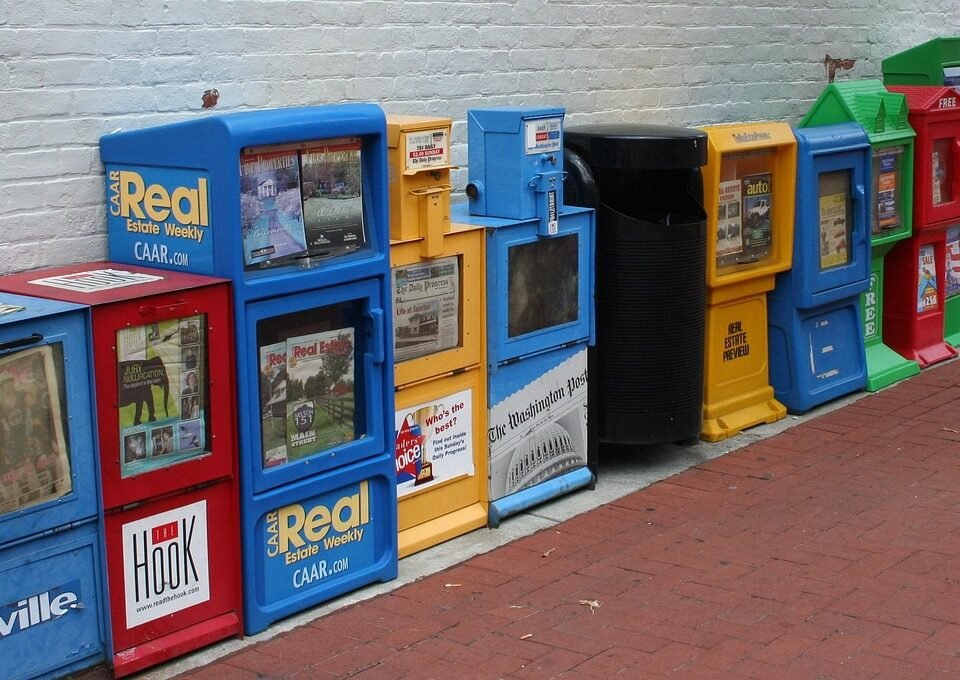
Office Vending Machine: A Modern Office Supply Essential
August 29, 2025
Benefits of Smart Cooler Vending Machines for Your Location
September 17, 2025What is a Vending Machine Business?
A vending machine business is a retail model where machines sell snacks, drinks, or products without staff involvement. It offers convenience, low overhead, and flexible locations. Many beginners often ask, Is a vending machine business profitable, and the answer depends on smart placement and product choice.
Vending machines represent one of the smartest ways to tap into this opportunity. For businesses that already have a physical location – whether it’s a shop, office building, or any space with decent foot traffic – adding a vending machine can create an additional revenue stream without much effort.
The beauty of this setup lies in its simplicity. Once you’ve got the machine installed and stocked, it essentially runs itself. Customers serve themselves, payments are processed automatically, and you collect the profits. There’s no need to hire staff or worry about opening hours since the machine works around the clock.
Is Vending Machine Business Profitable?
The answer is yes, the vending machine business is profitable. Let’s start by adding up some of the costs associated with running a vending machine business. After that, you can run into the revenue and profits you can earn from this business.
Understanding Startup Costs
The specific price you pay for your vending machine depends on the type, the brand, and the technology. There are classic change-based vending machines and more advanced cashless payment systems.
Aside from the machine itself, your only other startup cost will be the initial inventory for stocking the vending machine. This could be snacks, drinks, toy capsules, candy, or other products. Budget somewhere between 10,000 per machine upfront.
When property owners charge for vending machine placement, they typically take a percentage of your sales rather than demanding upfront rent. These commission arrangements usually range from 10-20% of revenue. This pay-as-you-earn model works better for operators since costs align with performance – you only pay when the machine actually generates sales.
Ongoing Costs of Operation
Once your business is running, you’ll still have regular costs. Most of these come from refilling products and keeping the machine in good condition. These simple tasks are part of managing your vending business.
Your main expense will be stocking products, so buying in bulk is the best way to boost profits. At vending media, we provide everything you need—from candy to toys—to keep your machines filled and customers happy. Moreover, you can customize the vending machine according to your requirements and cost. You’ll also have to pay someone to stock the machines on your run and keep them clean, but you can handle this yourself at first to keep costs even lower.
How Much Money Can a Vending Machine Return?
The costs are low, but the big question is—are vending machines really profitable? The answer mostly depends on where you place the machine and what products you offer. There isn’t one clear answer for everyone, but here are some common estimates to guide you.
- Low-traffic locations: $20-$100 per month
- Medium-traffic locations: $100-$500 per month
- High-traffic locations: $500-$1,000+ per month
A snack or drink vending machine in a good location can make around $300–$500 per month, while bulk candy or toy machines usually bring in $30–$150. Your actual earnings will vary based on how you set your prices. For example, a soda may cost you $0.50–$0.75 wholesale but can sell for $1.50–$3.00. The key is adjusting prices to boost profits while still keeping customers happy.
Vending machine business ideas
As vending technology advances and customer preferences change, there are endless opportunities to offer a wider range of products and services. Many operators are already stepping beyond traditional vending concepts and experimenting with creative ideas. Some types of vending machine businesses are:
- Burgers, pizza, and fries – fast food without the food truck or restaurant
- Pet foods, snacks, toys, and medicines
- Hot drinks & Laundry products
- Hams and cured meats – everything from bacon to salami and steaks
- Sushi – popular in Japan for ages, now expanding across the US
- Hair products – everything to keep male and female hair looking great
- Fresh vegetables – bring the produce aisle to your street corner
- Nutrients and proteins – muscling in on the fitness sector to keep athletes in top form
- Fresh flowers – no more shopping at the gas station on Mother’s Day
- Bulk vending
- Specialty vending
- Retail
How Profitable Are Vending Machines?
On average, smart vending machines usually cover their costs within 6 to 18 months—after that, the money you make is mostly profit. But how profitable are automated kiosks really? Your success depends on five main factors that shape this business model.
Location Selection
The first step for making a profit is to select a good location. High-traffic areas like office buildings, schools and universities, gyms, laundromats, supermarkets, grocery stores, Bus stations and train stations, malls and shopping centres, and hospitals generate consistent sales.
You can find high-traffic location areas by consulting an experienced vending locator, so that increase your revenue.
Otherwise, machines placed in low-traffic areas or poorly chosen locations may struggle to turn a profit.
Product Selection
Product choice directly shapes sales speed and margins, so decide carefully what to stock. Classic snacks and drinks move quickly because they’re impulse buys with demand and predictable turnover. Adding healthy options—like baked chips, protein bars, nuts, and low-sugar beverages—broadens appeal and secures premium pricing. Combo vending machines let you test mixes of cold drinks, treats, and better-for-you items in one footprint, reducing risk and replenishment trips. Track sell-through weekly, retire slow movers, and double down on bestsellers by season and site. Smart curation, not guesswork, is what drives sustainable vending business profit in schools, offices, gyms, and transit hubs.
Payment Options
Over the past decade, cash use has dropped sharply, changing how people make everyday purchases. To keep up, automated retail operators are turning to cashless kiosks equipped with card readers and mobile wallet options. Although the initial vending machine outlay may seem higher, this upgraded investment often delivers powerful returns, with some reports showing sales increases of 25–40%.
Maintenance and Restocking Frequency
Maintenance and regular refills play a big role in your earnings. Each time a machine is empty or out of order, potential sales are lost. Owners who stay on top of servicing and stocking consistently make higher profits than those who assume the business can run completely on autopilot.
Legal Requirements
Obtaining proper business and operator’s licenses, insurance coverage for liability and equipment protection, and tax permits before launching your business.
Market your business
Marketing a vending machine business involves two parts: convincing property owners to use your machines and attracting potential customers. Here are some strategies to consider for both approaches.
Marketing to potential locations
Start by building a simple website for your vending machine business that clearly shows what products you offer, which areas you cover, and how people can reach you. Keep it straightforward – potential clients want to quickly understand what you’re about and how to get in touch. Then share it on different platforms like Facebook, Instagram, etc.
Marketing to customers
Once your machines are in place, consider these marketing tactics to boost visibility and sales:
- Design eye-catching machine wraps or signage to stand out in a busy environment
- Create a rewards program to encourage repeat business
- Implement location-based advertising or engage with local customers through social media
Costs for a Vending Machine
Depending on the type of machine you buy, and if it is new or used, vending machines can cost from $50 for a used and basic dispenser, up to $10,000 for a brand new automated snack/retail machine. If you are customizing a vending machine, it depends, too.
With a low-cost location and a machine with few sophisticated features and selling simple products such as candy, sodas, and snacks, it may be possible to get a vending machine business up and running for as little as $2,000.
What are the costs for a vending machine business?
It has two categories
Capital costs:
This expense includes the price of the machine itself, along with any financing fees if it’s purchased through a loan. Even older vending machines often hold decent resale value, which is why this outlay is considered an investment. Over time, the unit is treated as a depreciating asset within your business.
Operating costs:
This is what it costs to keep the machine working and selling products. Operating costs include:
- Rent from the location owner
- Wholesale price of the products
- Servicing Insurance
- You may need to upgrade your machines
- Permits and licenses
- Taxes
- Management costs
Tips for Running the Most Profitable Vending Machines

Choosing the Right Locations for Maximum Sales
We might be starting to sound like a broken record, but the biggest factor influencing vending machine business profits is location. You need to do your research into the most lucrative opportunities in your area to maximize your chances of success. Our favorite spots include:
- Office buildings & break rooms: Employees need snacks and drinks throughout the workday.
- Schools & universities: Students rely on vending for quick meals and study snacks.
- Gyms & fitness centers: Protein bars, energy drinks, and water are always in demand.
- Laundromats: A waiting audience looking for snacks, drinks, and laundry essentials.
- Hotels & motels: Guests often need late-night snacks and travel necessities.
- Hospitals & medical centers: Long waits create demand for quick, convenient food and drinks.
Optimizing Pricing for Maximum Profitability
Pricing is a fickle beast. On one hand, you can earn higher vending machine business profits by charging more. But at a certain point, you’re deterring customers with cost. How do you find the sweet spot?
To a certain extent you can think about your location. Right or wrong, customers expect to pay more at places like airports, hotels, and hospitals than they would at their own office or a school.
Set Yourself Up For Success at Vending Media Inc.
Vending Media has been supporting industries that want to get into the vending industry. We provide top-quality machines for snacks, drinks, toys, and bulk candy, all at competitive prices. By choosing us, you don’t just get reliable equipment, you also enjoy bulk discounts on products that keep your machines full and profits growing. Whether you’re just starting with smart retail kiosks, already managing a self-service machine company, or expanding your automated vending venture, we offer the tools and support you need to move your business forward.
Final Words on Vending Machine Business Profits
Is a vending machine business profitable? Absolutely, but building success takes real commitment, smart planning, and plenty of patience. While passive income is definitely possible, getting there requires hands-on work, careful preparation, and staying flexible when things don’t go as expected. It’s not just set-it-and-forget-it from day one.
Start small, test different approaches, and learn from your mistakes along the way. If you stick with the fundamentals and gradually improve your strategy, you could turn this into a profitable side business or even your main income source with time and effort.
FAQs About Vending Machine Profitability
Focus on high-traffic areas where people get hungry or thirsty. Office buildings, schools, hospitals, and gyms are goldmines. Apartment complexes, hotels, and waiting areas like auto shops work great too. Look for spots where people spend time but can’t easily leave – break rooms, lobbies, or anywhere folks might want a quick snack or drink.
Most vending machine operators start as sole proprietors since it’s simple and cheap to set up. As you grow, consider forming an LLC to protect your personal assets from business liabilities. You’ll need a business license, tax ID number, and possibly special permits depending on your location. Keep detailed records for tax purposes from day one.
You can place vending machines in busy spots where people spend time and might want snacks or drinks. Good locations include office buildings, schools, hospitals, gyms, apartment complexes, hotels, and waiting areas like auto repair shops or laundromats. High-traffic areas work best – think break rooms, lobbies, or anywhere people regularly pass by and might grab something quick.
Running a vending machine business isn’t always smooth sailing. You’ll face tough competition for the best spots, plus deal with people stealing from or damaging your machines. If you don’t stay on top of restocking or pick lousy management software, your machines will constantly be empty or broken down, costing you money and angry customers.
Yes, vending machines can be a great investment because they offer steady passive income with relatively low startup and maintenance costs. Their profitability depends on choosing the right products and securing high-traffic locations.




